
Viking Names
Broddi
Broddi, the first element in the place-name Broadholme, Lincolnshire, is otherwise mainly recorded in Iceland.
Read More

Viking Names
Elli
Elli is a mythological name from Old Norse elli ‘old age’. In Snorri Sturluson’s Edda, Thor battles with Elli who here is a personification of old age in the guise of an old woman. Even the mighty Thor cannot defeat her! The name Elli may be found as an element in some West Yorkshire place-names, but it cannot actually be distinguished from the Old English male personal name Ælla or Ælli.
Read More

Viking Names
Bruni
Brúni is a weak variant of Brúnn, originally an Old Norse male byname meaning ‘brown’. The latter name is recorded in some Norwegian place-names, but the independent instances may be loans from Continental Germanic. The weak form of the name, Brúni, was the name of one of the original settlers of Iceland in Landnámabók ‘The Book of Settlements’, but this name soon dropped out of use in Norway. The weak form is common in Swedish runic inscriptions (as bruni) and occasionally appears in Denmark. Brúni may be the first element in the place-name Brumby, Lincolnshire.
Read More

Viking Names
Brumby
The first element of the place-name Brumby, in the Manley Wapentake of Lincolnshire, is likely the Old Norse male personal name Brúni, although it has also been suggested it could be the Old Norse element brunnr ‘a well, spring’. The second element is bý ‘a farmstead, a village’.
Read More
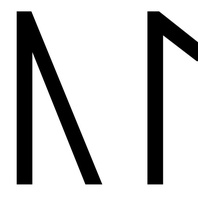
Viking Names
Tola
Tóla is a short form of names such as Þorlaug. It is an East Scandinavian name (Denmark, Sweden) and appears fairly frequently in Denmark. The name is also found in several Swedish runic inscriptions. It is attested in medieval documents from Lincolnshire referencing a woman who lived in Saltfleetby.
Read More
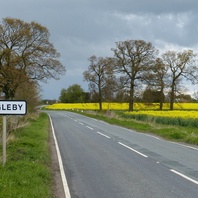
Viking Names
Ingleby
Ingleby, historically in the West Riding of Yorkshire, takes its name from the Old English ethnonym Engle ‘the Angles, later the English’ and Old Norse by ‘a farmstead, a village’. There is also an Ingleby in Derbyshire, close to the Viking winter camp at Repton, and the site of a unique Viking Age cremation cemetery. The exact implications of such a name are not yet fully understood and are the subject of ongoing work by Dr Jayne Carroll of the Institute for Name-Studies, University of Nottingham. Ingleby in Lincolnshire is now a joint parish with Saxilby.
Read More
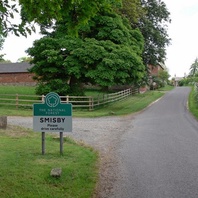
Viking Names
Smisby
The first element of Smisby, in the Repton and Gresley Hundred of Derbyshire, is either Old Norse smiðr ‘smith’ or it Old English cognate smið, the second element of the place-name is Old Norse by ‘a farmstead, a village’.
Read More

Viking Names
Saxi
Saxi was originally a byname derived from Old Norse noun sax ‘short, one-edged sword’, but possibly in some instances derived from an ethnonym from the name of the Saxons. An original East Scandinavian name, it is fairly common in Sweden and very common in Denmark. The name is rare in Iceland, although it is borne by one individual in the settlement period (c. 870-930). Although common in Eastern Norway, there is only a single instance of the byname Sax is recorded in West Scandinavia in the tenth century. Saxi is found in several place-names in Normandy. It is well-attested in Lincolnshire and Yorkshire although some forms may represent the Continental Germanic male personal name Saxo. Occasionally it is difficult to determine whether the first element in place-names such as Saxby All Saints, Lincolnshire and Saxby, Leicestershire is Saxi or the Scandinavian genitive plural form of an ethnonym: Old English S(e)axe, Old Norse Saxar ‘Saxons’.
Read More
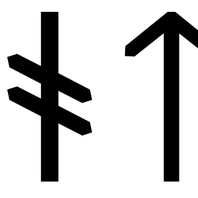
Viking Names
Fot
The Old Norse male personal name Fótr is the name of a fairly prolific Swedish rune-carver and is found elsewhere in Scandinavia. In England, the name occurs in several place-names in Lincolnshire (Fotherby, Fosdyke and Foston), Foston, Leicestershire, and possibly in another Foston in Derbyshire. In Fotherby, the place-name preserves the original Old Norse genitive singular ending (ie. as in Fótar). Such clear indications of Old Norse grammar survive relatively rarely in modern forms of place-names. Originally, Fótr was a by-name, meaning ‘foot’.
Read More

Viking Names
Welby
Welby, in the Framland Hundred of Leicestershire, is a Scandinavian compound from the Old Norse male personal name Āli and the Old Norse element by ‘a farmstead, a village’.
Read More
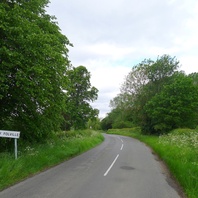
Viking Names
Ashby Folville
Ashby Folville, in the East Goscote Hundred of Leicestershire, is likely an Anglo-Scandinavian name coming from Old English æsc ‘ash-tree’ and Old Norse by ‘a farmstead, a village’. Some spellings may show influence of Old Norse eski ‘a place growing with ash-trees’ or even Old English esce ‘a stand of ash-trees’ on the first element. The suffix Folville comes from the de Folevill family who held the manor from the mid twelfth century until at least 1368.
